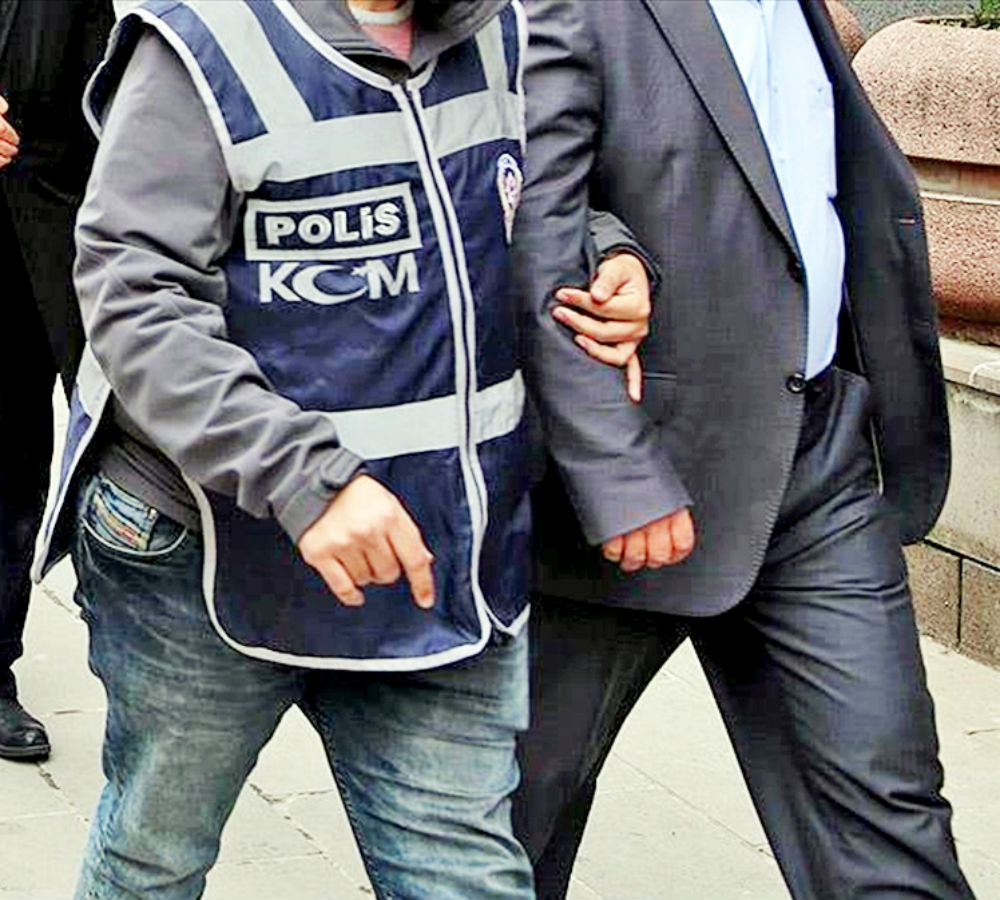Five journalists out of 42, for whom detention orders were issued in government-led move, were detained as part of an operation conducted by the İstanbul Police Department on Monday.
Journalists Yakup Sağlam, İbrahim Balta, Seyid Kılıç, Bayram Kaya and Cihan Acar were detained while police officers were unable to find 37 others.
Detention orders were issued for a total of 42 journalists critical of the government – including 72-year-old veteran journalist Nazlı Ilıcak – as President Recep Tayyip Erdoğan’s Justice and Development Party (AK Party) government widened its crackdown on free media after the failed coup attempt on July 15.
The Istanbul Public Prosecutor’s Office’s Terrorism and Organized Crime Bureau Deputy Chief Prosecutor İrfan Fidan demanded detention orders of 42 journalists on suspicion of membership in the so-called Fetullahist Terrorist Organization [FETÖ], which is used by the government-backed judiciary to frame sympathizers of the Gülen movement.
The 42 journalists for whom detention orders were given are; Abdullah Abdulkadiroğlu, Abdullah Kılıç, Ahmet Dönmez, Ali Akkuş, Arda Akın, Nazlı Ilıcak, Bayram Kaya, Bilal Şahin, Bülent Ceyhan, Bülent Mumay, Bünyamin Köseli, Cemal Azmi Kalyoncu, Cevheri Güven, Cihan Acar, Cuma Ulus, Emre Soncan, Ercan Gün, Erkan Akkuş, Ertuğrul Erbaş, Fatih Akalan, Fatih Yağmur, Habib Güler, Hanım Büşra Erdal, Haşim Söylemez, Hüseyin Aydın, İbrahim Balta, Kamil Maman, Kerim Gün, Levent Kenez, Mahmut Hazar, Mehmet Gündem, Metin Yıkar, Muhammet Fatih Uğur, Mustafa Erkan Acar, Mürsel Genç, Selahattin Sevi, Seyit Kılıç, Turan Görüryılmaz, Ufuk Şanlı, Ufuk Emin Köroğlu, Yakup Sağlam and Yakup Çetin.
A group of rebel soldiers, acting out of chain of command, attempted a military coup at around 10 p.m. on July 15, which left more than 200 people – including civilians – dead.
The Turkish government managed to suppress the coup attempt and launched a large-scale crackdown across the country on media, public servants, judges, prosecutors and teachers, along with rebels within the army. The detentions, arrests and massive purges that followed the crackdown widened and increased after a state of emergency was declared on July 20, concentrating power formally into the hands of Erdoğan by allowing him and his cabinet to make laws by fiat.
President Recep Tayyip Erdoğan has accussed the Gülen movement of being behind the coup attempt and demanded extradition of Turkish Islamic scholar Fethullah Gülen from the US. Thousands of public servants, judges, prosecutors and journalists were detained by the Turkish police for allegedly having links to the Gülen movement.
Meanwhile, Gülen recently issued a statement condemning the failed military coup attempt in Turkey, calling the allegations of his involvement “demeaning.”
The Gülen movement is a grassroots social initiative inspired by Gülen and carries out charitable activities all around the world, including education, distributing humanitarian aid and providing drinking water especially in African countries.
The Gülen movement is not considered to have influence over the Turkish military, which is known for its Kemalist roots that is against the Gülen movement. The rebel military officials who attempted to stage a coup named themselves as “Council of Peace At Home,” in a declaration they forcibly had delivered via the state-run broadcaster TRT on Friday night. The name is a reference to “Peace at home, peace in the world,” which is a famous saying by Mustafa Kemal Atatürk, the founder of the Republic of Turkey.
Since a corruption investigation erupted on Dec. 17, 2013 and led to the resignation of four Cabinet ministers, Erdoğan has launched a witch hunt targeting shop owners, teachers, members of the judiciary, journalists and police officers who are accused of being affiliated with the Gülen movement, which is also known as the Hizmet movement. The graft probe implicated then-Prime Minister Erdoğan, members of his family and senior Justice and Development Party (AK Party) figures.
Erdoğan accused the Gülen movement of plotting to overthrow his government and said that sympathizers of the movement within the police department had fabricated the corruption scandal. Since then, hundreds of police officers have been detained and some arrested for alleged illegal activity in the course of the corruption investigation. Erdoğan openly said he would carry out a “witch hunt” against anyone with links to the movement. The Gülen movement strongly rejects the allegations brought against it.



